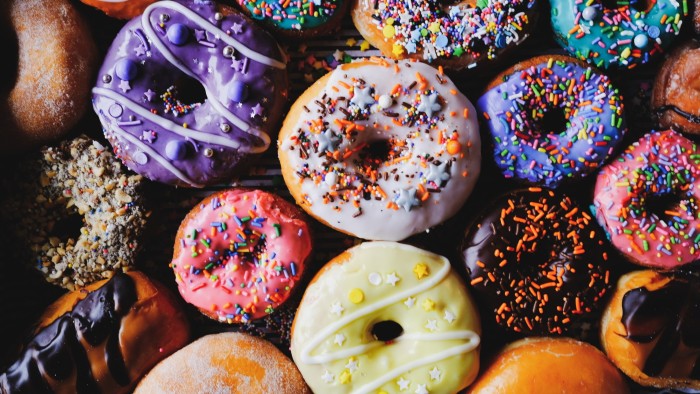Unlock the Editor’s Digest for free
Roula Khalaf, Editor of the FT, selects her favourite stories in this weekly newsletter.
As the festive food season kicks off, shoppers may be a bit more mindful this year of what is inside their mince pies and Christmas puddings. Dietitians and online “foodfluencers” are contributing to rising public awareness of the potential harms of having a diet high in processed content. Last week, Britain banned pre-watershed adverts for junk food products, which are often high in emulsifiers, stabilisers and other additives. In America, Robert F Kennedy Jr — Donald Trump’s nominee for health secretary — has pledged to curb ultra-processed foods. It may be one of the saner strands of the vaccine sceptic’s Make America Healthy Again agenda.
A significant portion of our food contains synthetic chemicals or has undergone some form of processing. But a slew of recent studies has indicated a link between diets high in UPFs and the increased risk of a number of illnesses, including cancer, heart diseases, obesity and depression. The additives packed into colourful breakfast cereals, biscuits, ready meals and greasy takeouts help make these foods — already high in sugars, fats and salts — more appetising. But new research suggests that even when salt, sugar and fat content is controlled for, UPFs can still lead to bad health outcomes.
The global food industry adds things like hydrogenated fats or high fructose corn syrup to our snacks and meals to make them tastier and longer-lasting. Reducing fresh ingredients can also extend shelf-life and keep costs low. This helps make products more profitable for mass consumption. UPFs now make up about 20 to 30 per cent of the calorie intake in developing nations like Brazil and Mexico. But Americans and Britons top the tables, with well over half of calories coming from these foods. Fast-paced lifestyles may have a role.
Given the health risks, helping households to curb their intake of processed ingredients is important. But definitions are still quite vague. Food sits on a spectrum, from the ultra-processed — like some fizzy drinks, containing a high number of complex chemicals — to fresh vegetables. In between there are common groceries such as store-bought breads and yoghurts that also undergo some degree of processing. Not everyone has time to regularly cultivate their own sourdough.
Processing is often necessary, too. In the US, Kennedy’s support for drinking raw milk, for instance, is risky, given the potential for bacterial contamination. Preservatives provide cheaper and less perishable alternatives, which poorer households and those without proper storage options often depend on. Besides, a midnight kebab is a treat, in moderation.
Bans seem neither practical nor desirable. Better to ensure consumers have the information to make healthier choices and to monitor what portion of their diet comes from processed content.
Some Latin American countries have introduced labelling requirements for UPFs, and a few nations explicitly mention these foods in their national dietary guidelines. The food and soft drinks industry — which in the US spent $106mn on lobbying last year — argues, however, that labels risk “demonising” too wide a range of products, given the broad definition of processed foods. It may have a point. But this is only an argument to back further UPF research on the health risks and to develop more appropriate classifications that can support more targeted warnings.
The public health risks of UPFs should also focus policymakers’ minds on how to improve access to affordable, fresh produce. For children in particular, better dietary education and limits around marketing UPFs make sense. Bad eating habits need to be tackled early on. Health-conscious consumers will also dial up pressure on companies to provide alternatives.
Changing diets hooked on processed foods will take time and, for the sweet-toothed, willpower. But helping the public make informed choices is a start.
Read the full article here

